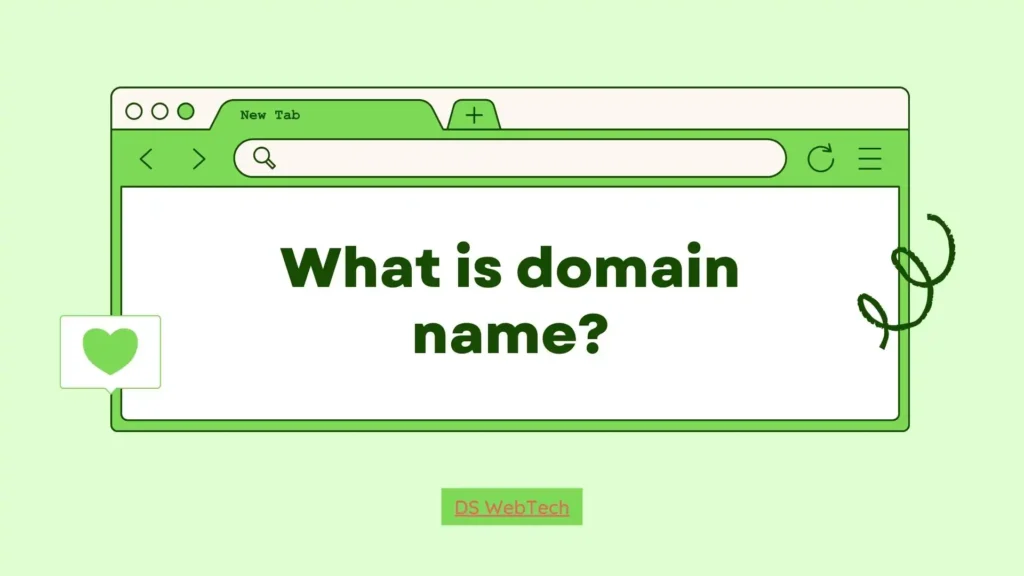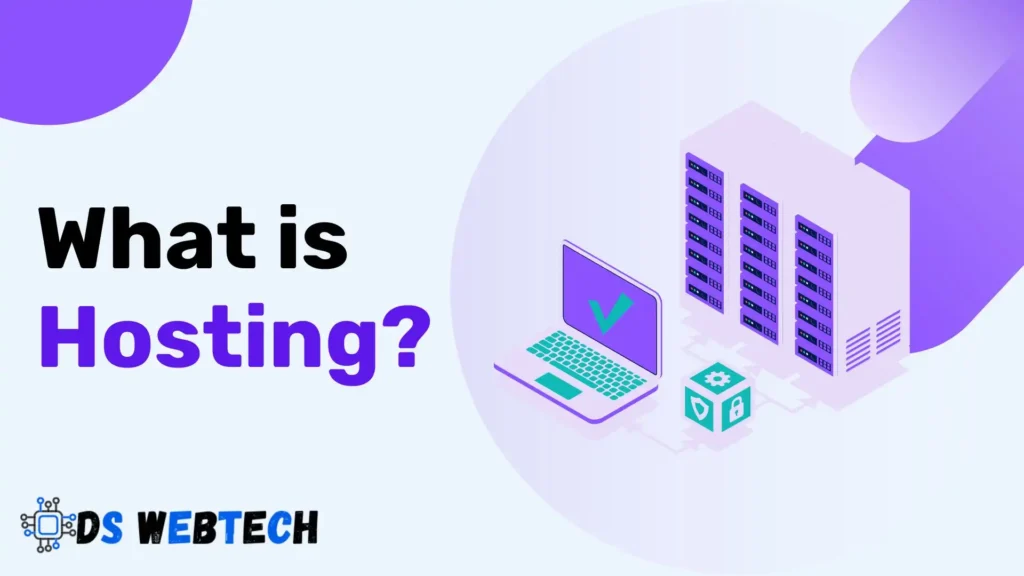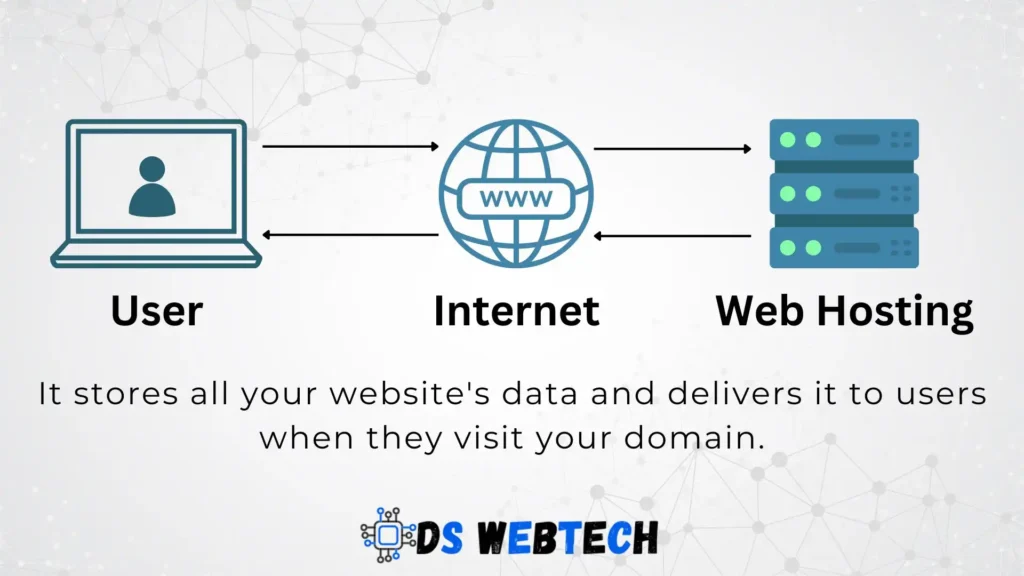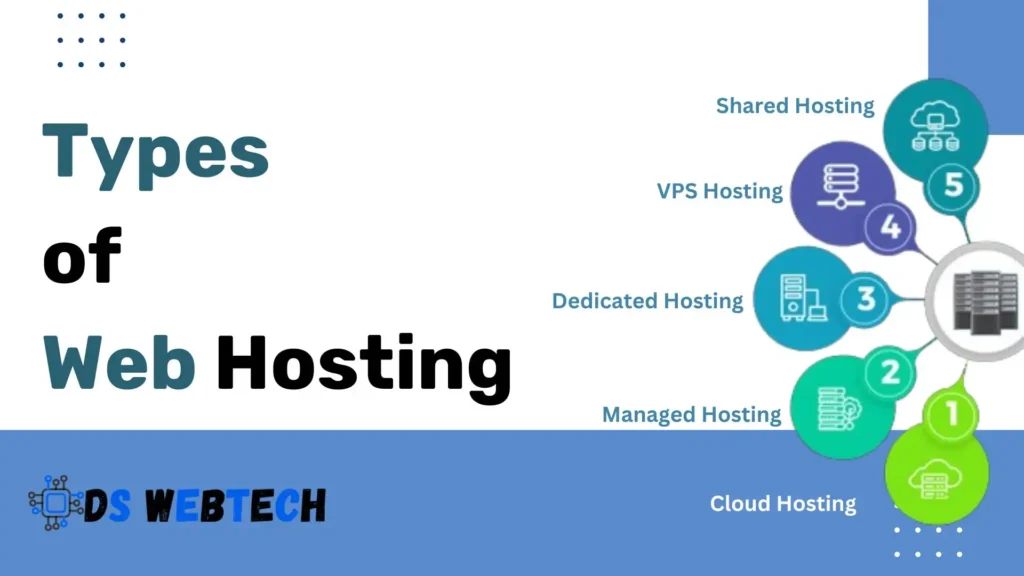Understanding What is Hosting and Domain: The Basics
In today’s digital age, having an online presence is essential for businesses, bloggers, and individuals alike. But before you can set up a website, two fundamental components are needed: hosting and a domain. These terms might sound technical, but they are the building blocks of the internet. Let’s break down what hosting and domains are, and how they work together to bring websites to life.
What is a Domain?
A domain is essentially the address of your website. Think of it like the address of your home. When you want someone to visit your website, you give them your domain name, just as you give someone your home address when you want them to visit your house.
For example, “www.example.com” is a domain name. It’s what people type into their web browser to visit your site. Domains are unique; no two websites can have the same domain name. This uniqueness ensures that when someone types in your domain, they reach your specific site.

Parts of a Domain Name
A domain name typically consists of two main parts:
- The Second-Level Domain (SLD): This is the name you choose for your site. For instance, in “example.com,” “example” is the SLD. This is where you can get creative and pick a name that represents your brand or personal identity.
- The Top-Level Domain (TLD): This is the suffix at the end of the domain name, such as “.com,” “.org,” “.net,” and many others. TLDs can denote the purpose of the website or the geographic area it serves. For example, “.com” is commonly used for commercial sites, “.org” for organizations, and “.edu” for educational institutions.

How to Get a Domain Name
To get a domain name, you need to register it through a domain registrar. There are many registrars available such as GoDaddy, Namecheap, Hostinger and may more, each offering various prices and services. When registering a domain, you pay a fee, usually on an annual basis, to secure the name for your use. It’s like renting the address space for your website.
Once you have a domain, you can connect it to your website. This connection is made through hosting, which we’ll discuss next.
What is Hosting?
While a domain is the address of your website, hosting is like the land and the building where your website resides. It’s the physical space on a server where all the files, images, and data for your website are stored. Without hosting, your website wouldn’t have a home and wouldn’t be accessible to the public.

How Does Hosting Work?
When you purchase a hosting plan, you’re essentially renting space on a server from a hosting provider. A server is a powerful computer that is always connected to the internet. It stores all your website’s data and delivers it to users when they visit your domain.
Here’s a simple analogy: if your website were a book, the hosting would be the library where your book is stored. People can come to the library (hosting server) and read your book (website) anytime they want.

Types of Hosting
There are several types of hosting available, depending on the needs and scale of your website:
- Shared Hosting: This is the most common and affordable type of hosting, ideal for beginners. In shared hosting, multiple websites share the same server resources. It’s like living in an apartment building where everyone shares the same utilities. While it’s cost-effective, it can slow down your website if other sites on the server experience high traffic.
- Virtual Private Server (VPS) Hosting: VPS hosting is a step up from shared hosting. It still shares a server with other sites, but each website has its own dedicated portion of the server’s resources. This offers better performance and more control over your hosting environment.
- Dedicated Hosting: With dedicated hosting, you get an entire server dedicated to your website. This is like owning a house, where you don’t have to share resources with anyone else. It offers the best performance and security but is also the most expensive option.
- Cloud Hosting: Cloud hosting uses multiple servers to host websites. If one server goes down, another kicks in, making it highly reliable. It’s like having multiple backups of your data. Cloud hosting is scalable, meaning you can easily upgrade or downgrade your resources based on your website’s needs.
- Managed Hosting: This is a service where the hosting provider takes care of all the technical aspects of running a server, including maintenance, security, and updates. It’s a good option for those who want to focus on their website content without worrying about the technicalities.

How to Choose the Right Hosting?
Choosing the right hosting depends on your website’s needs:
- For small blogs or personal sites: Shared hosting is usually sufficient. It’s affordable and easy to manage.
- For growing businesses or medium-sized websites: VPS or Cloud hosting offers better performance and scalability.
- For large websites or online stores: Dedicated hosting provides maximum control and security.
- For those who prefer not to manage the technical aspects: Managed hosting can be a convenient option.
The Relationship Between Hosting and Domain
Once you have a hosting and domain plan, you need to link them together. This is done by updating your domain’s DNS (Domain Name System) settings to point to your hosting server’s IP address. Think of DNS as an address book that helps users find your website.
When someone types your domain name into their browser, the DNS translates that domain into the IP address of your hosting server, and the browser can then display your website.
Conclusion
Understanding hosting and domains is crucial for anyone looking to establish an online presence. A domain gives your website an address, making it easy for visitors to find you, while hosting provides the space and resources needed to store your website’s content and make it accessible to the world.
By choosing the right hosting and domain solution, you can ensure that your website is not only accessible but also performs well, providing a smooth and enjoyable experience for your visitors. Whether you’re starting a personal blog, an online store, or a business website, mastering these basics is the first step toward a successful online journey.
After You learn about What is hosting and domain, you’ll need to know about setting up your website using WordPress. So, Click Here



